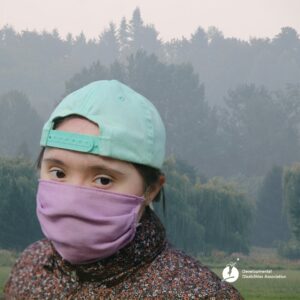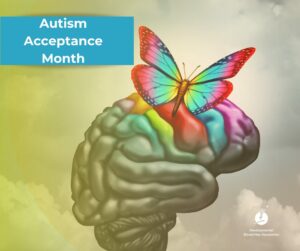By Alanna Hendren
I’m not sure what ‘community’ means anymore although the word is used quite liberally in the “Community Living” community. It used to mean “community living” instead of “institutional living” and made more sense back in the day. Today everyone lives in the community and all institutions are closed other than prisons.
When I think of ‘community’, I think of neighborhoods or groups of people who live around places like grocery stores, hospitals, schools and other services. By this definition, Vancouver has lots of distinct communities, like Kerrisdale, Kits, the West End, the Downtown Eastside, Chinatown, Langara, Strathcona, The Drive, Shaughnessy, UBC, on and on. Each of these communities has a distinct history and its own set of cultural norms that have evolved over the last 150 or so years. Richmond is much newer than Vancouver, having been built up only over the past 50 years or so, but some of its earlier farms still remain.
Most Canadian communities these days are transient. People buy homes, sell homes, move out, move in. Some communities are more stable than others but very few British Columbians today live in the same home as their grandparents did. Vancouver and Richmond are multi-cultural, multi-ethnic, and multi-linguistic cities. A lot of residents live thousands of miles away from their extended families, even if they’re just from Toronto but people come to Vancouver and Richmond from all over the world.
Communities also exist on-line for every recreational, professional, business, political, religious, sexual and common interest. People in these communities can also be global.
Traditional Indigenous communities in Canada were severely disrupted and many were destroyed when Europeans showed up and threatened their lands, languages, traditions, interests, and identities. Although the British signed no treaties with the Indigenous people of B.C. they still swept them out of their homes and into reservations. Colonizers sent Indigenous children to alien European schools and sold their ancestral lands to new settlers. Many Indigenous communities are now becoming prosperous but this cannot compensate for all they lost when they lost their histories, languages, customs and traditions. Today Indigenous people come to Vancouver from a diversity of First Nations, often without settling for very long. They are all far away from their extended families and sources of mutual support.
Geographic communities grew organically from the earliest homo sapiens who evolved or otherwise settled there thousands of years ago. People lived in the same villages as their ancestors did. As populations grew though, land and natural resources became increasingly scarce, so some people began to move on, literally looking for greener pastures. This is how the planet became populated and we now know that homo sapiens arrived in North America from Asia 40,000 years ago. Some people settled and some moved on, changing, adapting and creating new genetic variations as they moved south. Indigenous people knew how to meet their needs from the undisturbed bounty of nature, but Europeans did not and so brought new technologies and other adaptations with them.
The Europeans who settled the New World and places like Vancouver were all people who found it more attractive to take long, risky journeys across the world than to stay in the communities they came from. New settlers formed communities of migrants and we are still pretty transient. This makes us good at welcoming and including immigrants, although we’re not perfect, but the downside is that we cannot create communities of people who are related and therefore feel compelled to help each other. Urban Canadian neighbours often don’t know each other. In older settled communities like those found in Europe, most everyone has lived in the same place as their ancestors for centuries, everyone knows each other and their family history. People feel compelled to help each other because they have been helping each other for generations. There is a strong social commitment between families and neighbours. These communities take care of their own but are hugely challenged by immigrants. It is difficult for new residents with no extended family to fit in with a homogenous population that has the same language, traditions, social norms, customs and celebrations and where everyone else knows each other.
“Community Living” made sense 50 years ago but I’m not sure what it means today. People with developmental disabilities live and work in so many different communities these days, just like everyone else. Maybe it’s time for a rebrand? Thankfully, the DDA community is here to help support people in our geographic and virtual communities. Our clients come from all over the world and our staff, who also come from all over the world ensure they are connected to all their potential communities of interest and support. We could not do this without government funding but nor could we provide the supports we do without our employees, whose diversity gives us great strength and creates great opportunities for the people who we support.



